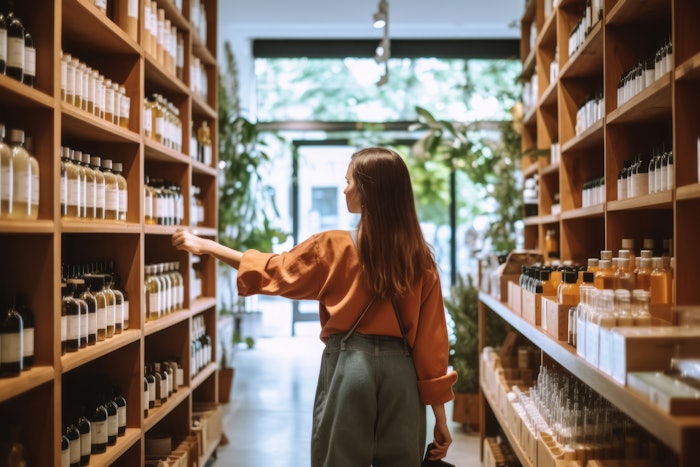


Date: 05 Nov 2025
The beauty industry is entering an exciting new era in 2025, one that’s defined by conscious choices, personalization, and cutting-edge technology. Today’s shoppers are more informed, socially aware, and digitally connected than ever before.
They expect brands not only to enhance their appearance but also to reflect their values, respect the planet, and provide real results. Let’s explore the major beauty trends to watch this year and what they reveal about the evolving desires of modern beauty consumers.

Sustainability is no longer just a buzzword — it’s a core purchasing driver. In 2025, beauty shoppers are demanding eco-friendly packaging, cruelty-free formulations, and transparency in ingredient sourcing. Many consumers are actively seeking products labelled “vegan,” “biodegradable,” or “refillable.”
Brands that embrace green chemistry and minimal waste packaging are winning consumer trust. From bamboo brushes to recyclable serum bottles, shoppers are rewarding brands that minimise environmental impact. According to a Forbes sustainability report, over 60 % of global consumers prefer beauty brands with visible eco-conscious practices.
Moreover, the rise of “clean beauty” is reshaping ingredient standards — harsh chemicals, parabens, and synthetic fragrances are being replaced by plant-based, dermatologist-tested alternatives. This shift reflects not just a trend, but a deeper cultural movement toward health, ethics, and environmental accountability.
Here are two excellent options available via the Kenyan online pharmacy Pharmily, which align well with the sustainable/clean beauty trend:
By recommending these products, we recognise that sustainability includes gentle formulations, safe usage and reduced irritants, as well as eco-conscious production — aligning with what beauty buyers want in 2025.

In 2025, skincare isn’t one-size-fits-all — it’s tailored to you. With the help of data-driven insights and AI-powered diagnostics, customers can now receive personalized skincare regimens based on their skin type, lifestyle, and even climate.
Shoppers are looking for products that adapt to their individual needs — think custom serums, DNA-based skincare, or AI skin analysis apps that recommend products in real time. This trend is driven by a growing desire for efficiency and effectiveness. Consumers don’t want to guess what works; they want scientifically backed solutions.
Personalization also enhances brand loyalty. When a beauty brand takes time to “know” its customer, it builds trust and long-term relationships.
Here are two products from Pharmily Kenya that support a more customised regimen, especially for targeted skin concerns:
When a consumer identifies their skin type or issue (e.g., uneven tone, acne scars, fine lines), they can select from these “niche” products rather than generic lotions — thereby aligning with the personalized trend.

The intersection of beauty and technology continues to reshape how consumers discover and experience products. Artificial Intelligence (AI) and Augmented Reality (AR) have become essential tools in both online shopping and in-store experiences.
Shoppers can now virtually “try on” makeup shades, test hair colours, or preview skincare results using AR-powered apps before making a purchase. This not only improves confidence in buying decisions but also reduces product returns and waste.
Additionally, AI-driven beauty devices such as smart mirrors, skin analysers and home facial gadgets are empowering consumers to monitor their skincare routines with precision. The convenience of tech-enhanced beauty aligns with modern lifestyles — offering personalization, data tracking and fun engagement.
While Pharmily primarily lists skin care rather than cutting-edge AR devices, we can still highlight tech-compatible products that dovetail with this trend of integrating technology and beauty:
Together, these products serve as tech-friendly anchors in a modern beauty routine: they are reliable enough to be integrated into app-based tracking or device-monitored regimens.
Looking beyond 2025, customer expectations will continue to evolve around ethics, transparency, and innovation. Shoppers are becoming more intentional, asking not just “what does this product do?” but also “who made it, and how was it made?”
Future consumers will prioritise:
This shift points to a future where beauty is not just about appearance but self-care, sustainability, and self-expression. As beauty brands embrace transparency and innovation, they’re not just meeting demand — they’re redefining what it means to be beautiful in a connected, conscious world.
To support future-oriented customer priorities, here are two products from Pharmily Kenya that demonstrate multipurpose or inclusive values:
By choosing products that serve multiple needs (e.g., barrier repair, anti-ageing, sensitive skin) and are widely usable, consumers signal their preference for value, versatility and inclusive design.
In 2025, beauty shoppers are shaping an industry that values sustainability, individuality, and technology. The products they select reflect deeper desires for authenticity, performance, and relevance to their lives.
As innovation meets ethics, brands that listen, adapt, and inspire will stand out in a crowded marketplace. The beauty of the future isn’t just skin-deep — it’s smart, sustainable, and deeply personal.
1. What does “clean beauty” mean in 2025?
Clean beauty refers to products made without harmful or controversial ingredients. In 2025, it also encompasses sustainability, ethical sourcing, and full ingredient transparency.
2. How is technology changing the beauty shopping experience?
AI and AR technologies are helping customers personalise skincare routines, virtually test products, and make informed purchases — improving both confidence and satisfaction.
3. Why are consumers demanding sustainable beauty products?
Modern shoppers are environmentally aware. They prefer brands that reduce waste, use recyclable materials, and promote ethical production to protect the planet.
4. What’s the future of personalised beauty?
Personalisation will go beyond skin type — future systems will analyse genetics, hormones, lifestyle and even climate to create hyper-customised products for every individual.